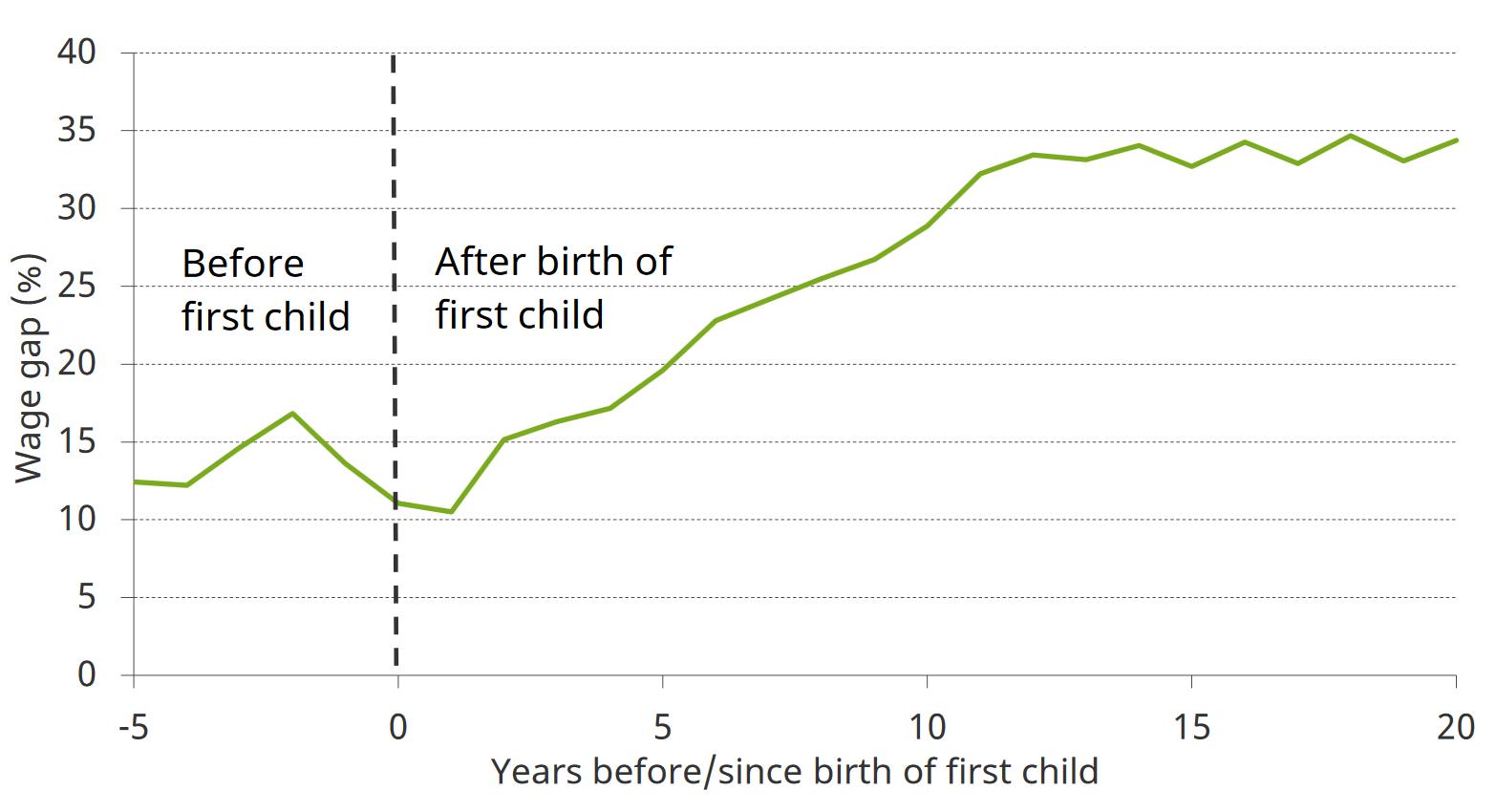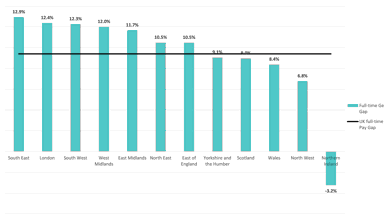Today the Equality, Local Government and Communities Committee publishes 'Work it out: parenting and employment in Wales', following its inquiry into pregnancy, maternity, parenting and work.
The report concludes that inflexible workplace structures, gendered assumptions about childcare, and wide scale discrimination mean mothers are more likely to be trapped in part-time, low-paid work with fewer opportunities for career progression. The Committee considered that these issues are key causes of gender inequality, and represent a loss to the economy. The UK Government’s Women’s Business Council estimates that equalising the employment rates of women and men could grow the UK economy by more than 10% by 2030.
What’s the issue?
In Wales, the employment rate for women with dependent children is 75%, compared to 91% for men with dependent children.
Research by the Institute for Fiscal Studies (IFS) shows that before the first child is born, the employment rates of men and women in the UK are almost identical. Between the year before and the year after the birth of the child, men’s employment rates barely change. But women’s employment rates drop by 33 percentage points (ppts) for those with GCSEs, 19ppts for those with A-levels, and 16ppts for graduates.
By the time the first child is aged 12, women’s hourly wages are a third below men’s. When the child is aged 20, women’s employment rates still have not caught up with men’s. 
Institute for Fiscal Studies (IFS) (2016) The gender wage gap
A 2016 EHRC survey found that 87% of employers in Wales feel it is in the best interests of organisations to support pregnant women and those on maternity leave. But it also found that 71% of mothers reported negative or discriminatory experiences as a result of having children, 15% reported a financial loss, and 10% even felt forced to leave their job.
The EHRC’s findings were reinforced by individual contributions to the inquiry. The Committee heard from a significant number of women who were made redundant during pregnancy or maternity leave, or whose role was changed or responsibilities reduced without consultation. Others could not find flexible employment to fit around childcare despite the legal right to request flexible working, and were forced into low-paid, precarious self-employment.
What did the Committee recommend?
The Committee believes that the Welsh Government can play a key role in eradicating discrimination by modernising workplaces and strengthening the obligations on public bodies, and private and voluntary organisations that receive public funding.
It recommended achieving this by:
- promoting flexible working: the Committee recommended that the Welsh Government should advertise public sector jobs (including teaching posts) as ‘flexible by default’, and lead the way by allowing senior roles like Ministers and councillors to be job-shared;
- ensuring that public bodies, and businesses and charities in receipt of public funding take responsibility for eradicating discrimination: the Committee recommended strengthening the obligations on organisations receiving public funding to provide flexible working and report on the retention rates of staff returning from maternity leave;
- reassessing the new Childcare Offer: the Committee heard that the Welsh Government’s new Childcare Offer was unlikely to achieve its main aim of increasing maternal employment in the most effective way. It recommended the Government reconsider the target age group and the income threshold;
- encouraging culture change: the Committee found that while legislation and workplace structures are important, discrimination and unfair treatment because of pregnancy or maternity will only be eradicated when unpaid care is no longer assumed to be solely a woman’s responsibility. It recommended including lessons about parenting and care in the new sex and relationships education, and to take steps to increase the take-up of shared parental leave among fathers;
- enhancing the provision of advice and information: employees and employers told the Committee that they were unable to access advice about pregnancy and maternity issues at work, and that careers advice was inadequate for parents returning to work. The Committee recommended that the Welsh Government improve advice services in Wales, and that information about rights and obligations at work should be provided to women at an early stage of pregnancy;
- improving data collection: the Committee recommended the public authorities should report on their maternity retention rates, and publish gender pay gap data in a more accessible way.
Rapid review of gender equality
The Welsh Government-commissioned Rapid Review of Gender Equality was published 10 July 2018, following the First Minister’s commitment to make Wales a ‘world-leader’ in gender equality.
The Rapid Review recommended that the Welsh Government should:
- Define a shared language and vision for gender equality in Wales;
- Consider establishing a Cabinet Secretary for Equalities and Women’s Empowerment, matched with a new Women’s and Equalities Committee in the Assembly;
- Strengthen integration between the public sector equality duties, Violence Against Women, Domestic Abuse and Sexual Violence (Wales) Act and the Wellbeing of Future Generations (Wales) Act;
- Look in depth at the practical steps Welsh Government can take to close its gender pay gap, including analysis of senior civil service pay policy;
- Introduce shared parental leave for WG employees at the enhanced maternity pay rate for fathers who take leave and encourage the same good practice in public services;
- Investigate and incorporate the value of unpaid care into the Welsh economic measures, alongside traditional measures such as GVA, and
- Improve the collection of disaggregated data.
The Welsh Government will respond to the Rapid Review and the Committee’s report in the autumn term.
Article by Hannah Johnson, National Assembly for Wales Research Service






